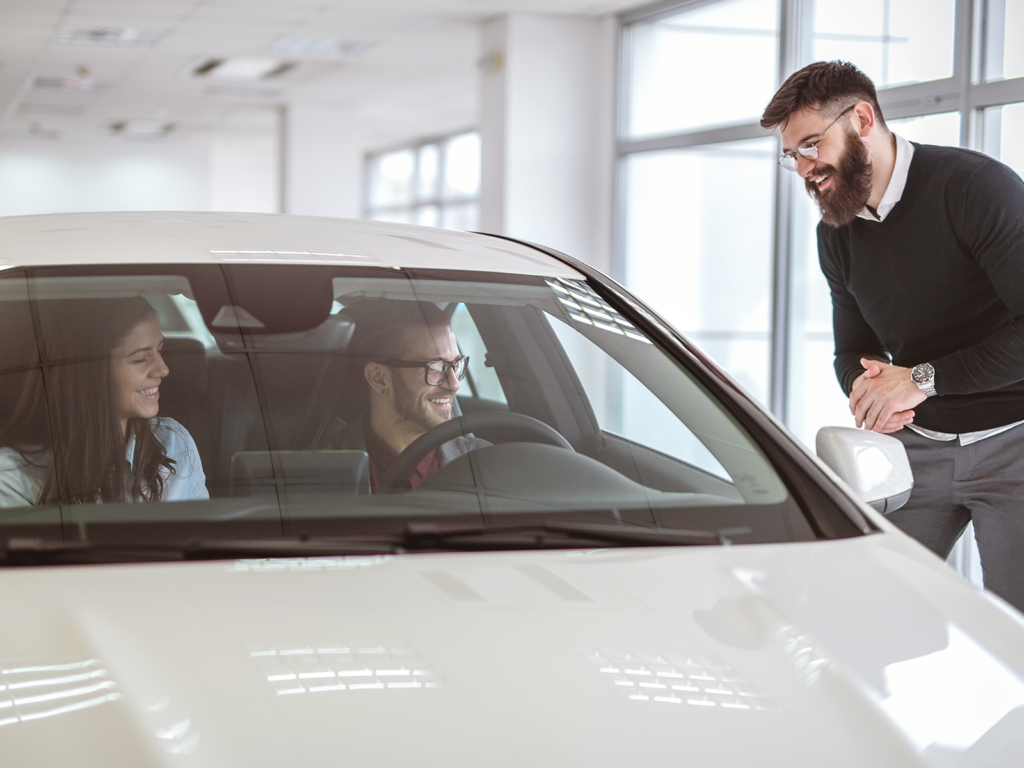
Leasing Vs. Buying A New Car In Canada
A vehicle is a big purchase, arguably one of the largest ones we make. For most of us, there’s a lot that goes into the purchase—research, financial planning and of course, test drives. It’s important to know your purchase options so you can make an informed decision before you buy your next vehicle.
We’ll review the difference between leasing vs buying a car in Canada, the pros and cons of each and what you should ask yourself before you choose a purchasing path.
Key Takeaways
- Leasing Offers Flexibility: Leasing allows you the opportunity to drive newer vehicles with lower upfront costs, but it comes with mileage limits and additional insurance requirements, such as gap coverage.
- Buying Provides Long-Term Savings: Purchasing a vehicle offers ownership benefits, including no mileage restrictions and eventual equity, though it requires a higher initial investment.
- Manitoba-Specific Considerations: In Manitoba, MPI’s mandatory insurance affects leasing and buying differently. Lessees often need extra coverage, while buyers face upfront PST costs.
What’s the difference between leasing versus buying?
How Leasing Works
Leasing is like a rental. You make monthly payments to drive the car and at the end of the lease term, you can choose to return it and get a different vehicle, or purchase it from the lender. Lease terms are usually between two to four years. What you pay for is the amount the car will depreciate (or lose value) over your lease term.
Here’s a fun way to look at leasing:
The car’s value today – the car’s value at the end of the lease = the price you pay to lease
These terms can be negotiated with the lender.
Read more: Getting a Car Loan with Bad Credit
How Buying A Car Works
When you buy a car, either through cash or financing, you eventually own the vehicle. If you purchase it outright in cash, it’s yours then and there. However, if you finance your vehicle purchase, you’ll still be making monthly payments—the difference is the car is yours once it’s been paid off.
The pros and cons of leasing
Before you decide whether leasing vs. buying a car in Canada is right for you, it’s important to take a look at the pros and cons! Like anything, there are two sides to every coin.
Read more: Is It Better To Buy Or Lease A Car?
Pros of leasing
- Cheaper monthly payments. When you lease a car, you’re only paying for the depreciation of the vehicle. Your monthly payments will typically be lower than financing.
- Less maintenance costs. Most times, maintenance is covered in your monthly payments. Wear and tear is typically covered but if you start getting into major repairs, that’s when you may be on deck for costs.
- Upgrades. When your lease is up, you can always upgrade to the latest model. If you’re the type of person that likes all the new gadgets and tech features, leasing is a reasonable way for you to get those premium features.
- No down payment. A lot of times, a down payment isn’t required when you lease a vehicle. This is one extra expense you won’t have to worry about saving for.
Cons of leasing
- Cost of early termination. If you need to end your lease early for whatever reason, it may cost you just as much as the lease itself. Lenders don’t like when their contracts are broken so if you don’t think you can keep up with monthly payments, leasing may not be the best option for you.
- You come out empty-handed. When you lease, you get nothing out of it when your lease is up. Yes, you’re paying to drive a nice vehicle but once your payment term is up, the vehicle isn’t yours to keep. You don’t get anything tangible out of the agreement.
- No customization. You have some options when you select a vehicle you want to lease but there isn’t the same opportunity to customize your features—you have more flexibility when you buy. If you’re okay with having less choice in the car you drive, leasing may be a good option!
- Less flexibility. Most lenders have mileage restrictions on leased vehicles. You might only be allowed to drive 20,000 kilometres per year. You’ll really have to be mindful of the car’s mileage and condition to avoid extra charges.
- You’ll pay more. At the end of the day, you’re still paying lots of interest on your monthly payments and you won’t gain anything at the end of it. Oftentimes insurance rates on leased vehicles are also higher.
The pros and cons of buying
When you buy a car, you have two options: purchasing with cash or financing. Most of us don’t have thousands of dollars lying around to put towards a new vehicle, so many people opt for financing.
When you finance a car, you make monthly payments (with interest) but unlike leasing, you end up with a car at the end of your payment term. Your monthly payments aren’t indefinite and you’ll actually own the car when it’s all said and done. That being said, there are still pros and cons, even with buying.
Pros of buying
- You own the car. Can we say this one enough? The best part about buying a car is it’s yours. Your money is going towards something that you’ll actually own and can choose to sell down the road.
- Customization. You have the power to customize your car however you choose. Want it to be bright green? The choice is yours. Want a sunroof and all the latest tech? You can add it on. When you buy, you gain a level of customization that you won’t get with a lease.
- You build equity. When you make car payments, you build equity (or value) with each payment, as you get closer to owning the car outright.
- Lower insurance costs. Typically your insurance costs will be lower since new vehicles require less repairs and maintenance.
Cons of buying
- Maintenance expenses. Though it may not happen immediately, chances are you’ll encounter some sort of car trouble and your vehicle will need repairs. With a lease, routine maintenance is included but when you buy, those costs are on you. You may have warranty coverage for a set amount of time but it won’t be around forever.
- You’re in charge of selling it. Should you ever want to sell your vehicle, it’s up to you to take care of it. Selling a car can be a time-consuming and frustrating process but it’s something that comes with buying.
- Higher monthly payments. Since you’re paying for the entire value of the vehicle, plus interest, your monthly payments will be higher than monthly payments on a lease. But remember—you’ll own a vehicle at the end of it.
- Depreciation. Arguably the largest con of buying a new vehicle is it loses value (or depreciates) as soon as you drive it off the lot.
When To Lease Versus When To Buy A Car
Now that you know the pros and cons of leasing vs. buying a car in Canada, you can start to think about which option is best for you.
If you love that new car smell and having the latest tech and features, leasing may be the route you take. Every couple of years you can get something new and you’ll always be up-to-date with the latest trends. If you have a business and can deduct vehicle expenses, leasing may also be better for your tax situation. You can write off expenses and have a nice vehicle—in this case, it could be worth the price.
If you’re thinking about buying, ask yourself what type of car you’d like to have. If you want specific features and see the value in customization, maybe buying is your best bet. You’ll pay more upfront for a new vehicle but you’ll likely have less repairs for the next few years. If you opt to buy used, the purchase price and insurance will cost less than a new vehicle. However, you may need to pay more for repairs if the vehicle is a few years old.
One last thing to consider about buying: The down payment. The more of a down payment you can put on a new car, the less your monthly payments will be, or the less time you’ll spend paying the car off (it depends on how you set up your payments). A down payment is an important factor when deciding whether to buy or lease.
How Leasing Affects Insurance
When leasing a vehicle, insurance requirements can differ significantly from owning a car outright. Leasing agreements often require lessees to carry higher levels of coverage, including comprehensive and collision insurance, to protect the leasing company’s financial interests. Additionally, you may need gap insurance, which covers the difference between what you owe on the lease and the car’s actual value if it’s totalled or stolen. While these additional coverages provide peace of mind, they can increase your overall insurance premiums. It’s essential to factor these costs into your budget when considering whether leasing aligns with your financial goals.
Leasing Vs. Buying A Car In Manitoba
In Manitoba, deciding between leasing and buying a car involves considering local laws and financial factors unique to the province. Manitoba’s mandatory public auto insurance provided by Manitoba Public Insurance (MPI), covers basic insurance needs but leasing agreements often require additional coverages, such as collision and comprehensive insurance. When leasing, you’ll also encounter mileage restrictions and potential penalties for exceeding them, which are strictly enforced under lease contracts. For buyers, purchasing a vehicle means paying PST upfront, whereas lessees pay it incrementally through their monthly payments. Additionally, owning a car outright allows for long-term savings and flexibility, while leasing offers lower upfront costs and the opportunity to drive newer vehicles every few years. Understanding these nuances can help Manitobans make informed choices that align with their driving habits and budget.
Financing Your Next Vehicle With Birchwood Credit
There’s a lot of information to consider before making a vehicle purchase. We know car shopping can be stressful, but it doesn’t have to be. If you need a bad credit car loan, our credit experts can walk you through the process. Check out our Car Loan Calculator—you can adjust your loan term and duration to help you plan your budget.
If you’re ready to get pre-approved, fill out an online application today and our credit experts will be in touch.




